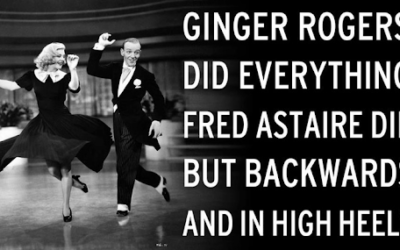Forbes has just published its annual list of the world’s 100 Most Powerful Women.
I applaud these women for their amazing impact and success, and I applaud Forbes for recognizing them. Yet it makes me wonder. Do Forbes’ more traditional criteria for power – “political and economic might” – seem broad enough? These are good and valid measures of power. I just don’t think they’re broad enough, because I don’t think they help us rethink power in the ways that power needs to be rethought.
I’d like to see a list of the most powerful peacemakers; the most effective educators; the most inspiring role models; the greatest champions for those without a voice. Whether or not you will ever hear about them, these are women of power as well. Forbes won’t be heralding them, but someone should. Over the coming months, I’ll be working with InPower Women to establish an annual award to recognize women who demonstrate an expanded, more current form of power: measured not by the size of title or income, but rather by the quality of their impact and character. Stay tuned!






